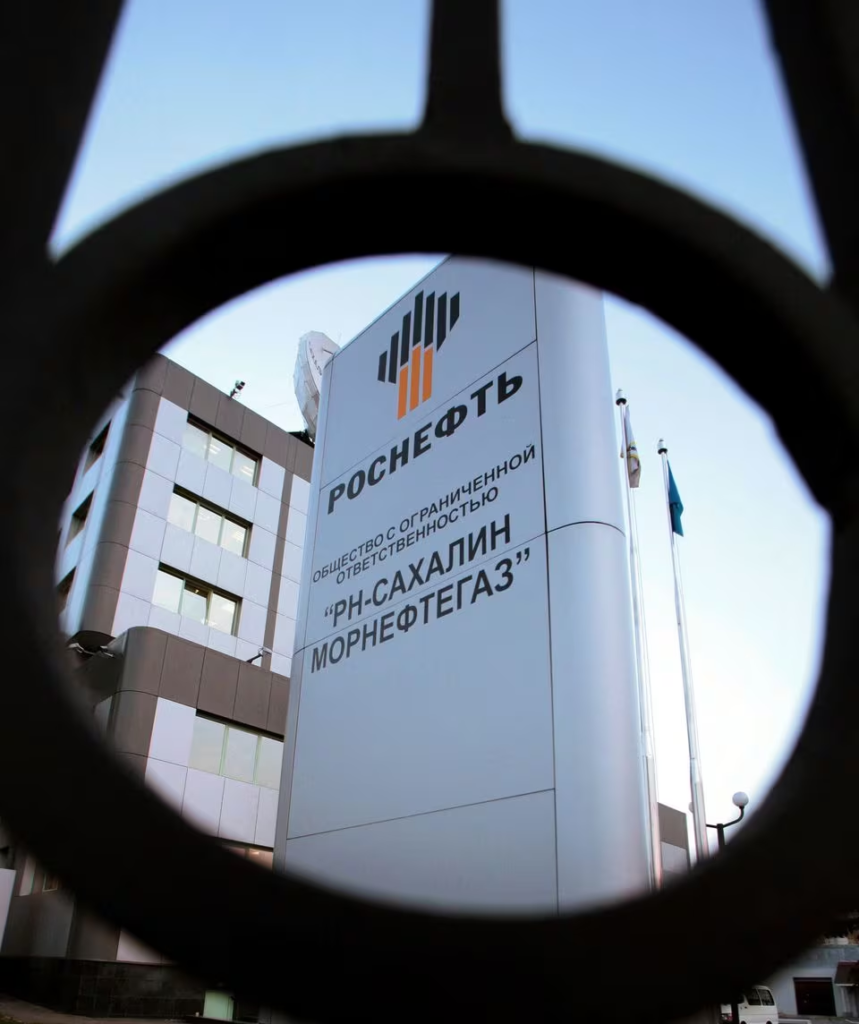More than a million barrels of petroleum, loaded on 14 tankers have been stranded off the coast of South Korea for weeks, as Russia struggles to find buyers amid sanctions.

The US sanctions have left 10 million barrels of Sokol grade crude oil from Russia to be stranded at the coast off the Pacific ocean without any possibility of selling it.
This volume represents at least a month’s production of the Sakhalin-1 project, which was once a flagship project of US-based Exxon Mobil, which exited Russia after the invasion of Ukraine in February 2022.
Sakhalin-1 was the first major deal finalized in the post-soviet era under a shared production agreement between Exxon Mobil and Russia. The production fell almost to zero and hasn’t been able to recover since the former left the country in 2022.
Difficulties in selling Sokol grade crude oil is one of the few challenges Russia has faced since US and other European countries imposed a list of sanctions on the country and its commodities, disrupting the exports from the country for the last two years.
ALSO READ: TSMC profit drops 19% in Q4, better than expectations
The Sanctions and its Impact
Washington has long maintained its position that the purpose of these sanctions is to reduce the revenues and earnings capabilities of Russia, which will force President Vladimir Putin and his army in Ukraine to pull off from the war, and not to disrupt the global oil markets.
Last year, the United States imposed sanctions on shipping companies and vessels that were transporting sokol grade crude oil from Russia to other parts of the world.
As of Friday, 14 vessels loaded with Sokol grade petroleum from Russia were stranded at South Korea’s port of Vosu including three very large crude carriers (VLCCs) as the country struggles to find buyers.
The volume stored in these vessels represent 45 days of production from the Sakhalin-1 project, averaging output at 220,000 barrels per day.
DONT FORGET: Microsoft replaces Apple as world’s most valuable company
The Vessels Floats in Vosu
Super tankers or the VLCCs Nireta, La Balena and Nellis with more than 3.2 million barrels of oil, are currently acting as floating storage for Russian crude oil near the port of Yosu in South Korea, as per Reuters sources.
Previously, VLCCs accepted oil from several small Aframax vessels via ship-to-ship transfer, supplying oil from smaller ships to larger ones saving freight. The rest of the Sokol grade crude oil is stored on Aframax vessels with a capacity of 500,000 – 800,000 barrels.
Delayed shipments of Sokol have created challenges for many refineries and petroleum firms across the globe. Recently a delay in the shipment of Sokol crude oil to Indian Oil Corp (IOC.NS) due to some payment issues had forced India’s largest refinery to import oil from the Middle East.
A source close to the Refinery said that it does not expect Sokol shipments to commence soon due to a disagreement over currency to be used in transactions. IOC is the only state refiner that has an annual deal to purchase different grades of Russian crude oil including Sokol.














